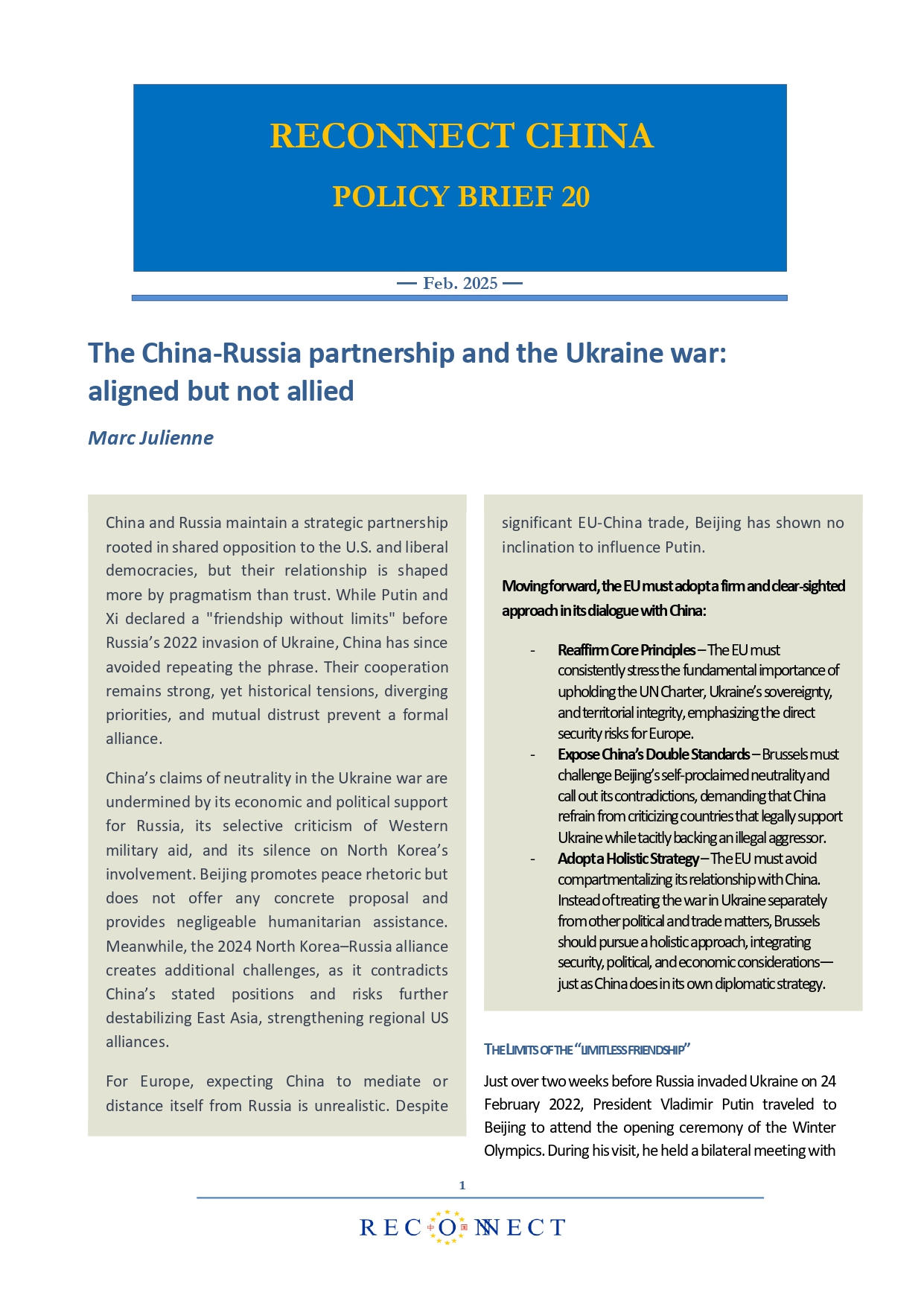The China-Russia Partnership and the Ukraine War: Aligned but not allied

China and Russia maintain a strategic partnership rooted in shared opposition to the U.S. and liberal democracies, but their relationship is shaped more by pragmatism than trust.
While Putin and Xi declared a “friendship without limits” before Russia’s 2022 invasion of Ukraine, China has since avoided repeating the phrase. Their cooperation remains strong, yet historical tensions, diverging priorities, and mutual distrust prevent a formal alliance.
China’s claims of neutrality in the Ukraine war are undermined by its economic and political support for Russia, its selective criticism of Western military aid, and its silence on North Korea’s involvement. Beijing promotes peace rhetoric but does not offer any concrete proposal and provides negligeable humanitarian assistance. Meanwhile, the 2024 North Korea–Russia alliance creates additional challenges, as it contradicts China’s stated positions and risks further destabilizing East Asia, strengthening regional US alliances.
For Europe, expecting China to mediate or distance itself from Russia is unrealistic. Despite significant EU-China trade, Beijing has shown no inclination to influence Putin.
Download the ReConnect China Policy Brief via the project’s website: The China-Russia Partnership and the Ukraine War: Aligned but not allied

Available in:
Themes and regions
Share
Related centers and programs
Discover our other research centers and programsFind out more
Discover all our analyses
RAMSES 2024. A World to Be Remade
For its 42nd edition, RAMSES 2024 identifies three major challenges for 2024.
France and the Philippines should anchor their maritime partnership
With shared interests in promoting international law and sustainable development, France and the Philippines should strengthen their maritime cooperation in the Indo-Pacific. Through bilateral agreements, expanded joint exercises and the exchange of best practices, both nations can enhance maritime domain awareness, counter security threats and develop blue economy initiatives. This deeper collaboration would reinforce stability and environmental stewardship across the region.

The China-led AIIB, a geopolitical tool?
The establishment of the Asian Infrastructure Investment Bank (AIIB) in 2016, on a Chinese initiative, constituted an attempt to bridge the gap in infrastructure financing in Asia. However, it was also perceived in the West as a potential vehicle for China’s geostrategic agendas, fueling the suspicion that the institution might compete rather than align with existing multilateral development banks (MDBs) and impose its own standards.
Jammu and Kashmir in the Aftermath of August 2019
The abrogation of Article 370, which granted special status to the state of Jammu and Kashmir (J&K), has been on the agenda of the Bharatiya Janata Party (BJP) for many decades.







